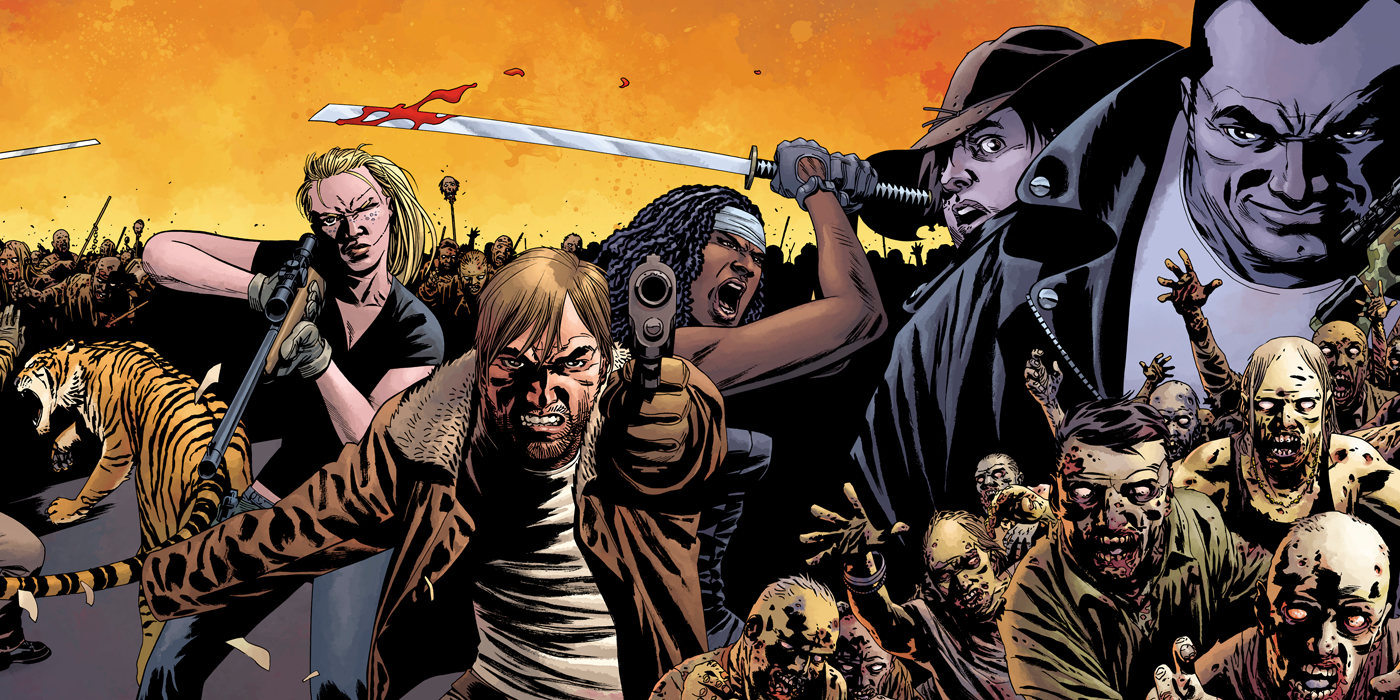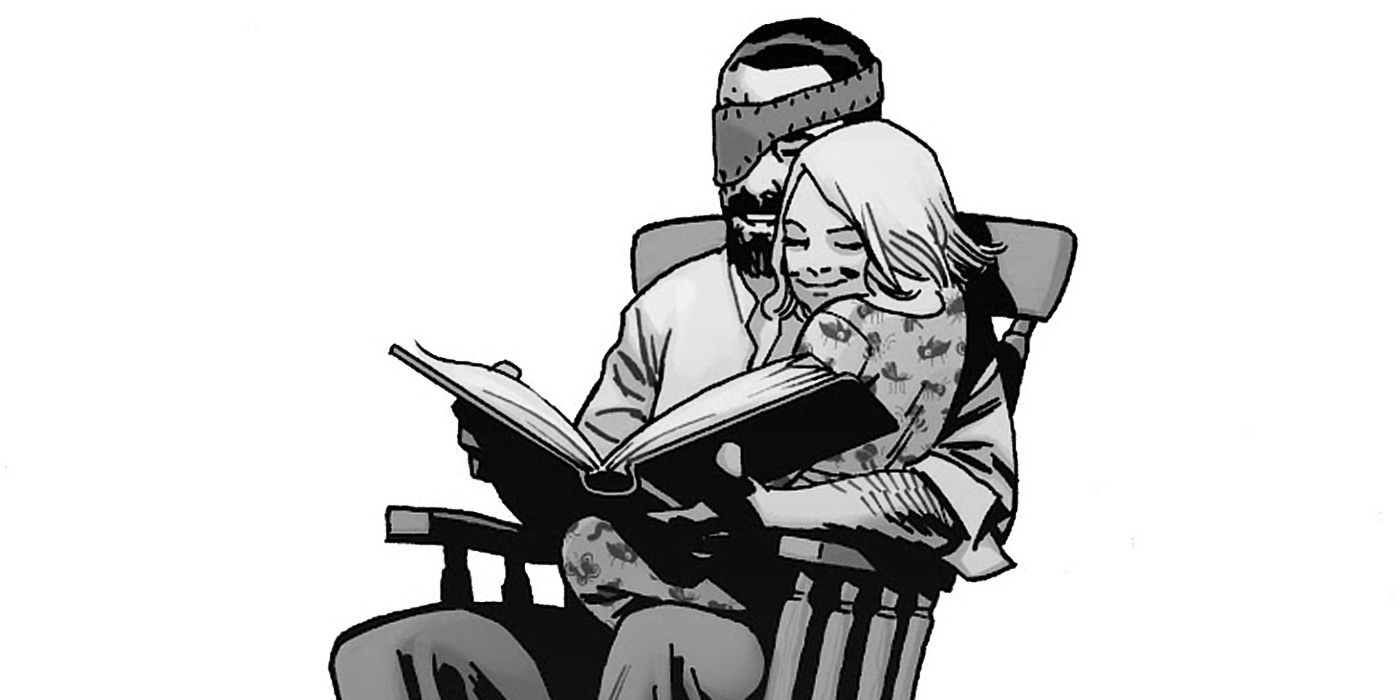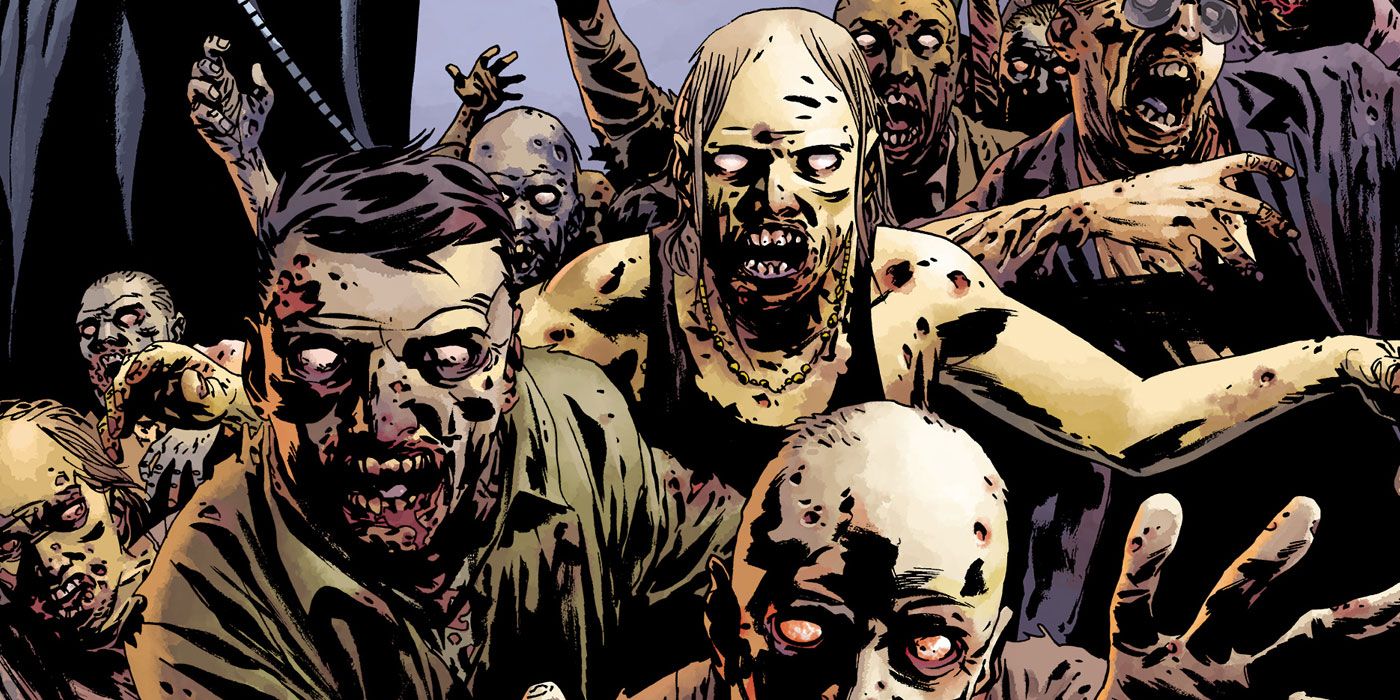Nearly 16 years after the first issue hit the shelves, Robert Kirkman announced the end of The Walking Dead comic book series with the release of Issue 193. It caught many fans off guard, especially since the landmark Issue #200 was just around the corner.
Much like it began, though, the zombie series concluded on its own terms. No one could've guessed that it was set to close as it did, though Rick Grimes' death certainly indicated the end was a possibility.
"As a fan, I hate it when I realize I'm in the third act of a movie and the story is winding down," Kirkman wrote. "Some of the best episodes of Game of Thrones are when they're structured in such a way and paced to perfection so your brain can't tell if it's been watching for 15 minutes or 50 minutes ... and when the end comes ... you’re stunned."
It's interesting that Kirkman mentioned Game of Thrones, since the series -- particularly the TV adaptation -- drew numerous comparisons to the fantasy show over the years. Fans were surprised as popular characters perished or turned on each other unexpectedly. It was unpredictable in the best possible way, keeping everyone glued to what would happen next and talking about each shocking event.
The Walking Dead TV show, though, lost its mojo several seasons ago, with pundits and fans betting on when AMC would wield its axe. While there's been a noticeable improvement in the overall quality of Season 9, most of the audience has dropped off and the series is unlikely to win them back anytime soon.
On the contrary, the comic book series maintained a large part of its fanbase throughout its 16-year run. Looking at the Diamonds Comics Distributors' chart for May 2019, The Walking Dead #191 appears in 27th place, above the likes of Superman #11 and Thor #13; an astounding feat considering the marketing budgets of DC and Marvel compared to Image Comics. The trade paperbacks also remain popular among comic buyers, regularly topping the charts whenever they're released.
In fact, you could argue that the TV series acted as the best advertisement for the comics, since the fans who picked up the books continued with them long after they gave up on the show. Most creators bemoan how the popularity of TV programs and movies don't often translate into comic book sales, but Kirkman is likely to argue the opposite.
Sales figures aside, the true legacy of The Walking Dead is how it maintained its high standard throughout, winning two Eisner Awards along with other accolades. The quality in storytelling and artwork never dropped, nor did the creative team rest on their laurels. Forget about the spinoffs, video games and other merchandise, because the comics are where the magic truly lies. For a decade and a half, Kirkman and his collaborators produced engaging and compelling stories, putting Rick and the survivors through the wringer and racing fans' hearts. It's these tales that'll stand the test of time and set the benchmark for future zombie series.
So, yes, while it would've been a nice gesture to see The Walking Dead conclude on issue #200, it didn't overstay its welcome for the sake of fan service or bragging rights. Kirkman decided it was time and that was that; plus, he wrapped things up on a positive and satisfying note. Many other creators could learn a thing or two from him about ending a series gracefully rather than trying to milk a zombified cash cow.



